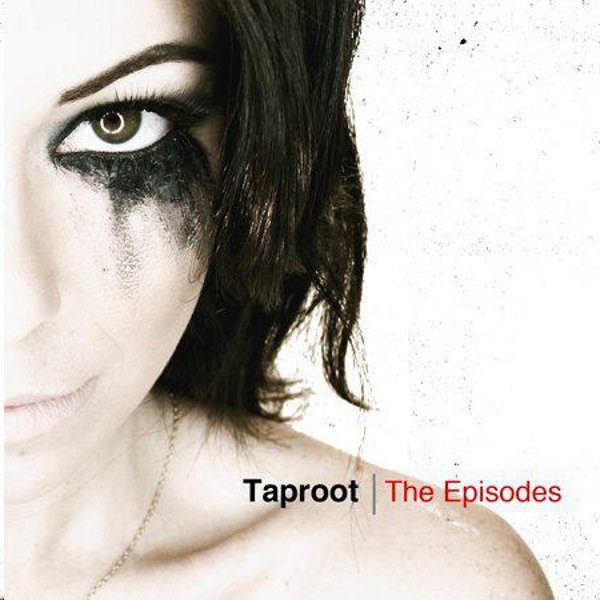Taproot: Melting Faces and Mending Hearts With New Album

Taproot’s new album, The Episodes, is a like a one-act rock opera. It tells a fragmented story that centers around a funeral and examines themes like grief, isolation, loss, and death through a Lynchian lens. “I don’t like throwing the ‘Lynch’ word out there very much because I do admire the dude,” Taproot’s drummer, Nick Fredell, said.
The Episodes mixes the past and the future with the present, and the result is a harmonious success. The first singles, “No Surrender” and “The Everlasting,” are appealing tunes, each accompanied by videos that offer pitch-perfect translations of the songs.
I saw Taproot play at the Gramercy Theatre in September in New York City, one of many stopping points during their tour with Nonpoint. Taproot’s energy, spearheaded by their animated frontman, Stephen Richards, brought a somewhat lethargic crowd to life.
Before the concert, I met with Fredell. Originally from Flint, Michigan, Fredell joined Taproot in 2008. He nursed a large coffee as we discussed the curative powers of drumming, the “zombie-ish” effects of life on the road, and The Episodes.
I was curious if you have any pre-show rituals?
Mine have sort of changed. I know what time it is [when guitarist] Mike [DeWolf] cracks a beverage. It used to be that way with Steve as well. However he quit drinking so that’s no longer a ritual. We all start getting dressed around the same time every day — there’s a little bit of a hockey team in there.
I read that you guys played a lot of hockey, growing up in Michigan.
I grew up playing football, so I’m sort of a muscle-head at heart. Steve and Mike are definitely hockey brats.
So you played football in high school, did drumming come after that?
No, drums sort of came before that. I think I’ve been a drummer my whole life. [Laughs].
Was your family musically inclined or was that something you discovered on your own?
Just sort of on my own, yeah. I just recently had this memory: I wanted to play guitar when I was really young. And they made fun of me [because] I was chubby when I was a kid. I remember being sort of ashamed of it, so I wound up [playing] drums so I could be behind something. I remember deliberately making that decision. Therapy, it works. Everyone should try it. It jogs some stuff up, that’s all I know. I don’t have anything horrible that happened to me or anything, but it definitely jogs weird memories.
Just playing?
Yeah. I remember where I was and everything.
It does seem like one of the most therapeutic aspects of playing music.
Absolutely. When I stop drumming, I notice that I’m more of an angry person.
Really? That’s fascinating.
Not for my wife, it’s not fascinating.
I’ve heard about band members who’ve switched to playing drums because they wanted something that was more hyper.
Well, Steve’s actually a drummer, and then he just sort of got forced out front because they needed a singer. He’ll tell you, he’s a drummer first, which helps me a lot. He sort of thinks more like me than I do.

Are you involved in the lyric-writing process?
Not the lyrics so much. The Episodes was done like six years ago. The first time I heard the record I was with Jarrod [Montague], their first drummer, riding home from a show. So it’s been sitting there forever. This one was very much a — how do we approach this from a drummer standpoint or from a musical standpoint. That’s where I came in and we have some things that are totally different from that demo.
So they made the demo, and then set it aside for a few years?
They were a little bit frustrated when they were recording Our Long Road Home, which was right before I joined the band. Basically, Mike looked at Steve and said “I just want to write a song a day for 10 days straight. Let’s just go take a break from what we’re doing.” So that happened, and I listened to it and I told Steve back then, “This is the best demo you guys ever did.” I really believed that then. I just thought it would be one of the Taproot downloads that fall to the wayside because they have a history of that. They have a lot of demos and B-sides that never saw the light of day. And I really thought this record was gonna be the same way. Apparently the world needed to hear it ‘cause here it is.
So they wrote the songs over the course of 10 days?
Yeah.
It feels very fluid.
Yeah, they wrote the story first. They wrote three characters and a plotline and worked that story and those emotions with the music. It was thought of as a 10-episode drama, if you will.
There are only two videos so far. Is there going to be a third?
It looks like we’re gonna get to do a third. (It looks like that anyway, I don’t wanna say that we are.) So at least it’ll be a three-act installment. They were nice enough to not let us appear in the video for “The Everlasting” that just came out. We wanna push the story, we don’t wanna push us playing. Our fans know what we look like. We’d rather spend the budget on getting the story across as opposed to our faces.
One of the aspects I really appreciated is the use of the speech-feature voice. Where did that come from?
Specifically for us, it was the narrator of the story. That was really where it came from. Morgan Freeman was unavailable. Slide his part of the budget into our pockets.
By the time I got to “A Golden Grey,” the next to last song, I found myself thinking, “Wow. This album is kind of gut-wrenching.”
Fair enough.
The phrase “I don’t belong here” occurs several times. And by the final song, “We Don’t Belong Here,” it almost takes on a whole new meaning. The implication is almost like we as humans don’t belong on this planet, in these bodies. Am I reading too much into it?
No, I think you can take it there. Yeah. I don’t wanna fill anyone’s heads with thoughts. Even the “don’t belong here” thing, a lot of times we get traveling and we sort of have this inside joke about how sometimes, we feel like we’re already dead. Like we get so zombie-ish, and it feels like you don’t belong anywhere. And that’s sort of what I take away from that.
I saw a poster on your website that says “Melting Faces and Mending Hearts.”
Yeah, that’s one of Mike’s lines. Mike uses that a lot. For years.
So over the years, rough guestimate: How many faces melted?
[Laughs] Oh geez...Almost a million of them of have bought our record...
There you go: A Million Faces Melted.
Twelve. Let’s just say twelve. Let’s bring it way back [down].
Any memorable mosh pit experiences?
Yeah, I’ve seen some crazy ones. I remember seeing Rage Against the Machine when I was like 17, and that was just a riot. That’s all it was. It was a somehow sort of self-contained riot. I used to love going to mosh pits when I was younger, then I really got over it. Once I turned 18, something clicked. Like “You’re 18, don’t do that anymore.” Now I wanna watch the band and learn from them and see what they’re doing.
Author Bio:
Christopher Karr is a contributing writer at Highbrow Magazine.




























































































































































































































































































































